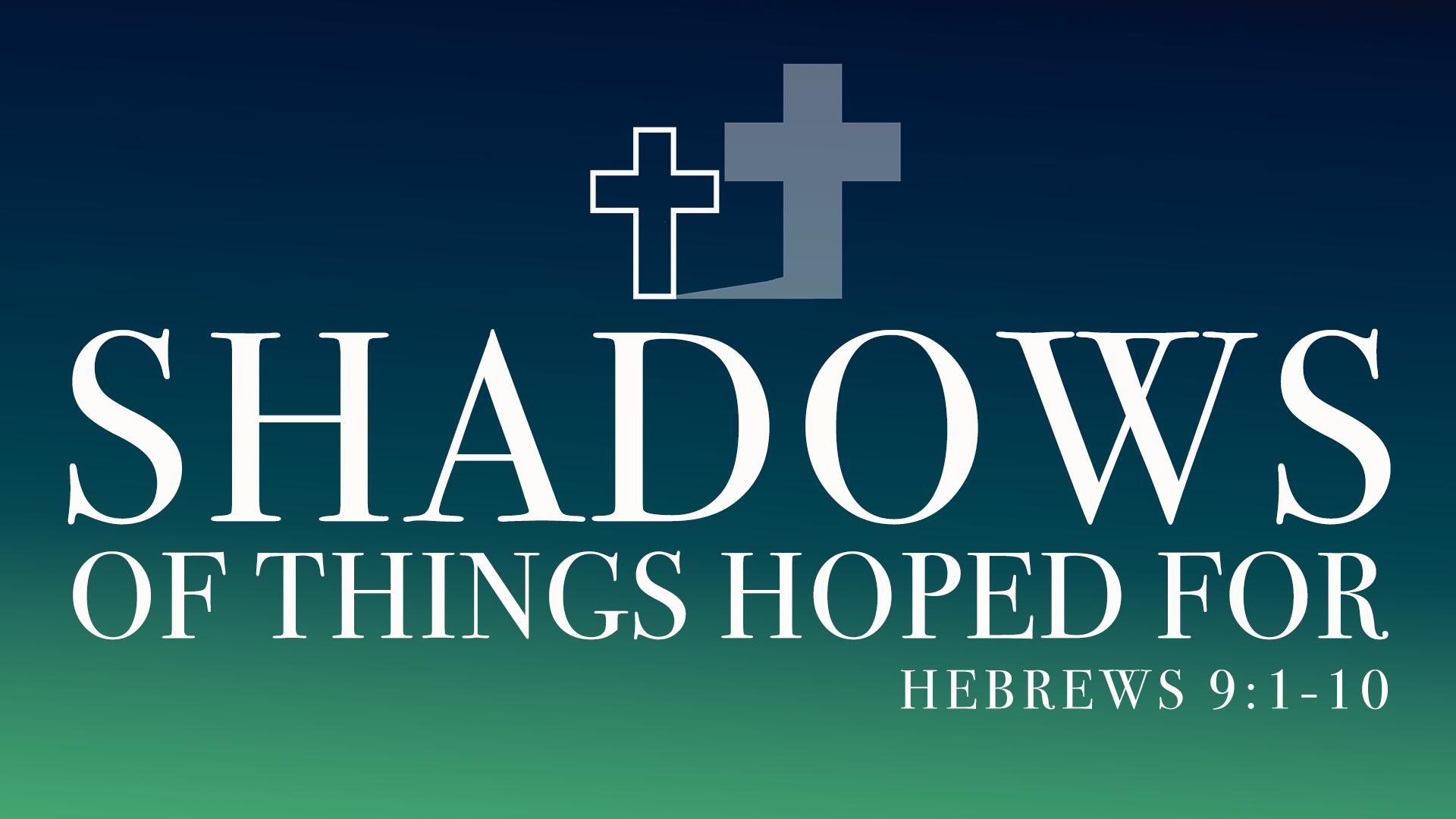Shadows of Things Hoped For | Hebrews 9:1-10
 Hebrews 9:1–10 brings us to a decisive moment in the story of redemption—a moment that forces us to ask where our hope truly lies. In a world that celebrates self-reliance and ingenuity, especially in cultures like New England’s, the text confronts our confidence in ourselves. The Big Idea that frames this passage is clear: Our old ways cannot save us—only Christ gives true life, shows us grace and mercy, and renews our hearts.
Hebrews 9:1–10 brings us to a decisive moment in the story of redemption—a moment that forces us to ask where our hope truly lies. In a world that celebrates self-reliance and ingenuity, especially in cultures like New England’s, the text confronts our confidence in ourselves. The Big Idea that frames this passage is clear: Our old ways cannot save us—only Christ gives true life, shows us grace and mercy, and renews our hearts.
The passage begins by painting a vivid picture of the tabernacle, that sacred tent in which Israel encountered God under the old covenant. With its detailed regulations and symbolic furnishings—the lampstand, the table with the bread of the Presence, the golden altar of incense, and the ark of the covenant—the tabernacle was indeed holy. Yet, it was not ultimate. These elements, as Colossians 2:17 reminds us, were shadows pointing forward to Christ. John Owen saw Christ in every feature: the lampstand representing the light of Christ, the bread symbolizing Him as the Bread of Life, the incense as Spirit-empowered prayer, the ark and mercy seat prefiguring Christ’s role as our propitiation. But shadows, no matter how sacred, cannot save. They prefigure, they teach, but they cannot perfect.
These shadows lead us to the second truth in Hebrews 9: the old covenant shows no mercy. The rituals were exacting and restricted. Only the high priest could enter the Most Holy Place, and only once a year, with blood—for his own sins and for the unintentional sins of the people. That word, “unintentional,” is key. Under the Law, there was no provision for high-handed sin. Numbers and Deuteronomy make this clear: those who rebelled defiantly were to be cut off. The Law was given not to save but to expose sin and reveal our desperate need for mercy. Bunyan’s Pilgrim’s Progress captures this brilliantly in Faithful’s encounter with Moses—struck down without mercy until Christ intervenes. The Law has no power to heal, only to condemn. It was never meant to be the end; it was meant to point beyond itself.
This brings us to the final insight: the old covenant was powerless to change hearts. Hebrews 9:9–10 explains that the gifts and sacrifices under the Law could not perfect the conscience. They regulated the body but left the inner life untouched. True transformation is the Spirit’s work. As Ezekiel prophesied, God would give His people a new heart and a new spirit. The law, like whitewashed tombs, could offer outward cleanliness but left the soul unchanged.
So how do we respond? We stop relying on our old ways—our striving, our pride, our self-made righteousness. We preach the gospel to our hearts daily. We immerse ourselves in the Word. We pray with expectant hearts. And we yield to the Spirit, trusting Him to reshape our desires and renew our hearts. In Christ, we are made new—no longer condemned under the Law, but free by grace.
Let us not return to the shadows. Let us walk in the light of Christ.